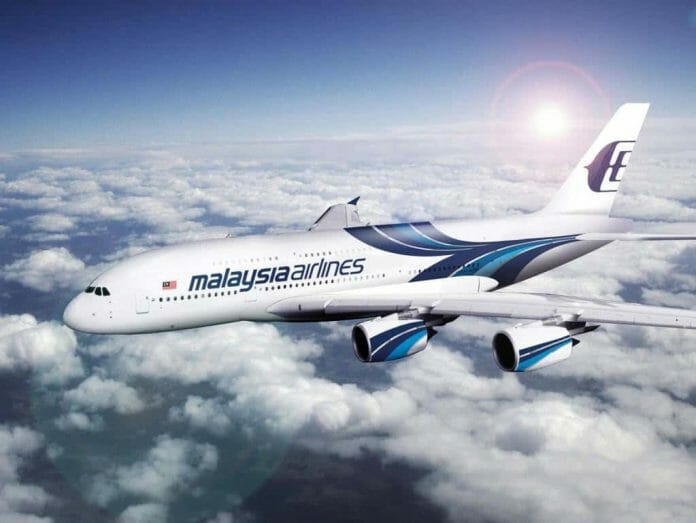An air of confidence and optimism exuded from Irfan Setiaputra as he took centre stage in Indonesia’s parliament earlier in June this year.
As the Garuda Indonesia boss outlined the flag carrier’s recovery from the unprecedented turbulence of recent years, politicians took turns to sing praises of the airline – a stark contrast to the mood at a similar hearing in 2021.
At the time, talk of dissolving and even establishing a replacement for Garuda was on the table. The company was struggling, with the COVID-19 pandemic bringing passenger numbers down by 90 per cent and inducing a net loss of nearly US$4 billion along with a US$10 billion debt to vendors.
But along with other neighbouring flag carriers, Garuda is faring much better today, having recorded in 2022 a profit of US$3.9 billion – the biggest in its 74-year history – as the pandemic eased off and travel restrictions loosened.
Across the strait, Malaysia Airlines (MAB) also turned profitable last year after back-to-back losses, in a turnaround that tripled its revenue due to strong demand internationally.
And regional standout Singapore Airlines (SIA) marked a milestone profit of US$1.6 billion for the 2022-2023 financial year ending in March, the largest in its 76 years of operating.
While the SIA announcement propelled its shares to a three-year high and led to eight-month bonuses for employees, bumpier skies may lie ahead for both Garuda and MAB.
Global airline industry at 90% of where it was in 2019: IATA director general Willie Walsh
The prospect of a ticket price war in a post-pandemic world looms large, with airlines competing for their slice of the surging demand for air travel. Meanwhile, costs to lease, operate and maintain aircrafts will likely balloon as once-dormant fleets are brought back to life.
Where the Indonesian and Malaysian flag carriers could bifurcate is in their trajectories through the storm, with experts calling for Garuda to adopt a more cautious approach – but for MAB to go on the attack.
“CRAZY” COMPETITION
Going into the pandemic, neither Garuda nor MAB was in the best shape.
The latter, long beset by high costs and a bloated workforce, struggled following the disappearance of its MH370 flight and the downing of MH17 over Ukraine, both in 2014.
That year, Malaysian state fund Khazanah Nasional took the airline’s parent company – Malaysia Aviation Group (MAG) – private in a rescue bid.
In 2019, MAG was ranked 10th out of the top 10 Southeast Asian aviation groups based on passenger traffic, according to an Asian Development Bank (ADB) study on the pandemic’s impact on the aviation sector.
Domestically, MAB’s two main competitors in pre-COVID-19 days were AirAsia Group and Malindo Air – recently rebranded as Batik Air Malaysia – according to independent analyst Brendan Sobie.
“It’s not just the number of competitors in the market but the way they were expanding,” said Sobie, who co-authored the ADB study.
“Some of them were quite aggressive … by pricing crazy low. And this led to losses for all the airlines in 2019.”
A Malaysia Airlines plane carrying the first batch of tourists arrives at the airport as Langkawi reopens to domestic tourists, amid the coronavirus pandemic, in Malaysia, Sep 16, 2021. (File photo: REUTERS/Lim Huey Teng)
When the pandemic hit in 2020, MAB began to restructure its RM16 billion (US$3.4 billion) debt, a process which involved renegotiating with leasing companies, creditors and state entities that was completed in early March the next year.
Sovereign wealth fund and MAG owner Khazanah also committed new capital of RM3.6 billion to fund the airline’s business throughout the restructuring period and until 2025.
Subsequently, the return of robust travel demand and effective cost control measures helped MAG reverse a RM767 million loss in 2021 to report an operating profit of RM556 million for the next year, according to the group.
Analysts said by restructuring its debts and financial obligations quickly, MAB managed to reduce costs significantly while holding on to all of its employees.
“During the pandemic we took a difficult stand to not ground any aircraft nor let go of any of our staff,” MAG managing director Captain Izham Ismail told CNA.
“And because of this stand, we were able to quickly relaunch services when our borders reopened in April 2022.”
MAB has reached 90 per cent of pre-COVID capacity and expects to bridge the gap once demand from China starts to bounce back by the end of 2023, he added.
The airline will also introduce more capacity to destinations that have experienced a surge in demand, such as Australia and South Asia.
“Amongst Southeast Asian carriers Malaysia Airlines has surprisingly been one of the few national airlines to exploit the market post-COVID, compared to laggards such as Garuda and Thai Airways,” said Endau Analytics founder Shukor Yusof.
“ALL SORTS OF PROBLEMS”
Garuda had entered the pandemic riddled with inefficiencies and scandals involving former CEO Ari Askhara, who was removed from office in December 2019 after getting caught trying to smuggle Harley Davidson motorcycle parts inside a newly delivered plane.
Under Askhara, the airline was also convicted and fined over allegations of price fixing and fraud related to financial statements.
When current chief Setiaputra took over, he told Indonesia’s parliament: “The pandemic has unveiled all sorts of problems happening inside Garuda: Inflexible cost structure, high aircraft rent and mismanagement.”
CEO Irfan Setiaputra next to a Garuda Indonesia aircraft with a special mask livery on its nose. (Photo: Garuda Indonesia)
To get its cash flow going, the flag carrier moved to downsize considerably, including by spinning off and closing down some of its subsidiaries.
The number of employees was cut from 7,878 in 2019 to 4,459 in 2022; while aircraft fleet strength dropped from 142 to 66 in the same period.
In the face of competition from main domestic rival Lion Group, Garuda also closed more than 100 domestic and international routes to shift attention to what it saw as more profitable ones.
The airline also kicked off a debt restructuring exercise in 2021 and was able to convert some liabilities into shares and bonds.
But it remains saddled with negative equity – more liabilities than assets – of US$563 million today, Jakarta-based aviation expert Gerry Soejatman pointed out.
On Jun 13, Setiaputra told Indonesian lawmakers that this was his company’s “biggest homework”. But he also said he was confident in continuing to turn things around.
“If we keep a tight leash on the way we manage these costs, (the issues) of the past can be addressed,” he said.
“Garuda has not fully recovered just yet,” Soejatman noted. “If Garuda can continue with its current cost discipline, Garuda will survive. But by the time they emerge out of their financial woes would they still be able to expand? This we don’t know yet.”
COMPLAINTS OF “DEAD WOOD”
This year, there have been some bright spots for the Indonesian flag carrier – chiefly in areas of customer satisfaction.
Garuda was voted as having the best air crew globally at this week’s 2023 Skytrax World Airline Awards, while in January it was named the most punctual airline in the world by travel data provider OAG Aviation.
MAG, on the other hand, admitted earlier this year that despite its positive finances, “many areas for improvement” remain in customer experience and on-time performance.
Shukor, the analyst, said these problems could be traced to MAB’s external vendors and that the airline needed a “complete change” of its outsourced services.
In-flight entertainment on domestic routes, for instance, has been a “biggest disappointment” for oil and gas executive Fashran Fauzi, who flies MAB from Kuala Lumpur to Kuala Terengganu for work about thrice a month.
“There is no difference from low-cost airlines. Food-wise for economy (class), it does not make the experience any better,” the 38-year-old told CNA.
MAG’s Izham, who is also MAB chief, said the airline has prioritised improving 10 key aspects of its customer experience ranging from check-in processes to in-flight food and beverage services.
MAB has also gone after underperforming staff, said the analyst Sobie, with Shukor adding that the airline could afford to be even “leaner”.
“Malaysia Airlines is still overstaffed despite having reduced its fleet size due to COVID-19. That means its ratio of workers per aircraft has risen, which will impact the bottomline,” Shukor said.
But weeding out “dead wood” would be a “politically sensitive” move, he added. “In the past the government of the day was reluctant to shed people at government-linked companies, such as Malaysia Airlines, on concern it may hurt the vote bank during elections.”
DARK CLOUDS ON THE HORIZON
Beyond such internal decisions, a litany of other challenges await airlines in the region in the coming year, analysts warned.
For one, costs are expected to return in the form of higher aircraft lease payments after MAB deferred some of these payments as part of its restructuring, said Sobie. “You have overall issues like inflation, and a strong US dollar which is putting pressure on cost increases.”
The Malaysian flag carrier also faces intensifying competition – including from two new entrants SKS Airways and MYAirline – and their ambitious expansion plans.
Malaysia’s plan to redevelop and reopen Subang Airport in suburban Kuala Lumpur to handle narrow-body jets will also create more competition for MAB and force it to split operations from its traditional hub at KL International Airport, said Sobie.
“You’ll see pressure on airfares to come back down and you’ll see low fares again in Malaysia,” he noted.
But Izham and his Garuda counterpart Setiaputra said they were unfazed by competition from low-cost carriers, with both adding that their focus was on capturing the premium market.
Enter dominant, full-service neighbour Singapore Airlines as a rival – but not quite, said Sobie.
Every airline is positioned differently in the market, and Garuda and MAB should recognise that they are not competing with SIA, according to the aviation consultant.
He pointed out that while SIA is “all international”, the Indonesian and Malaysian flag carriers are “smaller regional players” that have dropped almost all of their long-haul operations – and have domestic markets to cater to.
A Garuda Indonesia Airbus A330-300 airplane prepares to land at Soekarno-Hatta airport in Jakarta, December 11, 2014. (File photo: Reuters/Beawiharta)
In 2019, SIA proposed partnering with MAB to share revenue on flights between Singapore and Malaysia, and to expand regional and long-haul codeshare routes.
Garuda also recently signed a pact with SIA to coordinate fares and flight schedules.
Both plans are subject to approvals.
Sobie said the tie-ups were win-win: MAB and Garuda can benefit from SIA’s extensive network, while the latter can count nearby Malaysia and Indonesia as “extended home markets”.
POLITICAL BATTLES
If anything, reopening more routes should be the least of Garuda’s concerns, said the aviation expert Soejatman, as he urged the flag carrier’s executives to be conservative in spending.
“They need to focus on having a positive cash flow, because that is their engine towards profitability. Cash flow-positive means at least the business is still sound,” he said.
“I hope they will continue to be more nimble, more reactive to changes, (more able to) anticipate what happens next – than they were at the beginning of the pandemic.”
Garuda CEO Setiaputra said the airline was hoping to increase flights by 40 per cent every year, and to focus on raising the frequency of profitable routes.
“We still need to set aside 60 to 70 per cent of our profits to repay our obligations to creditors,” he added.
Chappy Hakim, an advisor at the Indonesia National Air Carrier Association (INACA), said there was plenty of room for future growth.
“Indonesia is strategically located between two continents (Australia and Asia), it has a big population, big in size, it has thousands of islands,” he told CNA.
But Hakim also cautioned that with Indonesia set to stage presidential and regional elections simultaneously next year, Garuda, as a state-owned enterprise, might have to contend with politics and government interventions – some of which have affected its bottomline in the past.
“Having a flag carrier, a premium airline, flying into one’s province or city is a great source of pride for some regional leaders,” he said. “Garuda has to choose their battles wisely because they will be inundated with requests or even instructions from certain people with short-term political agendas.”
WEATHERING THE STORM AND BEYOND
So a more measured, defensive strategy for the Indonesian airline – in contrast to analysts calling for its Malaysian peer to take the offensive moving forward.
Sobie pointed out that MAB has yet to use most of the government funding received during its restructuring, as it became profitable sooner than initially expected.
This means it has the capital to make the necessary investments to improve customer service and renew and expand its fleet, he said.
The airline expects to get the first four of 25 Boeing MAX 8s by the third quarter of 2023, as part of its narrow-body fleet renewal.
“If they do become unprofitable again in 2024 and beyond because of the market conditions and everything that’s outside of their control, they’re able to withstand some of that,” Sobie added. “Ultimately, I think their position financially is strong enough to weather the storm.”
But a prolonged return to the red could upset MAG’s sole shareholder, he warned, and again trigger existential questions for MAB.
“The government … has to kind of be prepared to basically support them through this period,” said Sobie. “But over and over again, the government always decides that Malaysia does need a flag carrier. When it’s necessary, they always kind of step up and recapitalise the airline.”
While MAG exec Izham acknowledged the “stiff competition and challenging macroeconomic environment” ahead, he said the group was in a “good position” to make key investments it could not necessarily make in the past.
Some of its key strategies going forth would include sustaining financial discipline and improving customer experience to meet changing demand, he said.
Endau Analytics’ Shukor also believes that MAB needs to be more aggressive – especially in fending off domestic competitors.
In tourist hotspots Sarawak and Sabah – East Malaysian states located on Borneo island – “more can and should be done”, he said. For instance, MAB could expand its network there beyond its subsidiary MASwings, to exploit “opportunities in that still raw frontier”.
Critically, MAB can become a much better airline by being “exceptionally disciplined, hard-nosed and more importantly, smarter in its business dealings”, said Shukor. “Of course, these are easier said than done.”









